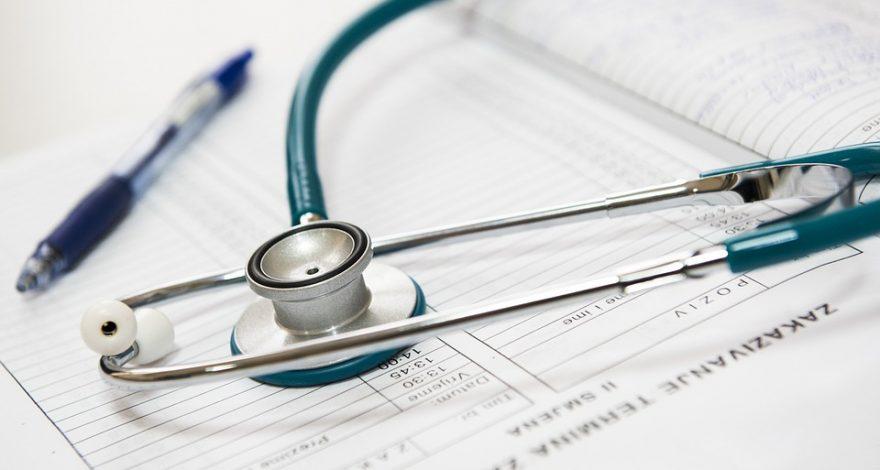USCIS Medical Exam: What to Expect, Requirements, and Complete Guide for Immigration

Immigrating to the United States is a life-changing step, and part of the process involves completing a USCIS medical exam. This exam is designed to ensure that applicants entering the country do not have certain health conditions that could pose public health concerns or affect eligibility for immigration benefits. For many applicants, the medical exam can feel intimidating, but with the right information, you can be fully prepared and confident.
What Is the USCIS Medical Exam?
The USCIS medical exam, officially known as the immigration medical examination, is a health screening required by the U.S. Citizenship and Immigration Services (USCIS). Its purpose is to evaluate whether applicants for immigration benefits have medical conditions that would make them inadmissible under U.S. immigration law.
Why Is the USCIS Medical Exam Required?
The USCIS medical exam is mandated for several reasons:
- Protecting Public Health – Ensures applicants do not have contagious diseases of public health significance.
- Vaccination Compliance – Confirms applicants have received all required vaccines.
- Meeting Immigration Law Standards – Certain medical conditions may make an applicant inadmissible without proper treatment or waiver.
- Completing Green Card or Visa Applications – The exam is a mandatory step in the adjustment of status process and some visa applications.
Who Needs the USCIS Medical Exam?
The USCIS medical exam is typically required for:
- Applicants for lawful permanent residence (green card)
- Refugees or asylees applying for adjustment of status
- Certain non-immigrant visa applicants, depending on the category
- Applicants adjusting their immigration status within the United States
What Does the USCIS Medical Exam Include?
The exam is thorough but straightforward. While requirements may vary slightly based on age and medical history, most exams will include the following:
1. Medical History Review
The civil surgeon will ask questions about:
- Previous hospitalizations or surgeries
- Current medications
- Past illnesses and treatments
- History of substance use or mental health conditions
2. Physical Examination
A complete physical exam is conducted to assess general health, which may include:
- Heart and lung check
- Vision and hearing tests
- Abdominal and neurological evaluation
- Skin and extremity examination
3. Communicable Disease Screening
The exam screens for diseases such as:
- Tuberculosis (via skin test or blood test, and chest X-ray if needed)
- Syphilis
- Gonorrhea
- Other conditions identified by CDC guidelines
4. Vaccination Verification
Applicants must show proof of vaccination against diseases like:
- Measles, mumps, and rubella (MMR)
- Polio
- Tetanus and diphtheria
- Pertussis (whooping cough)
- Hepatitis B
- Varicella (chickenpox)
- Influenza (seasonal)
If you’re missing vaccines, the civil surgeon may administer them during your exam.
5. Mental Health Evaluation
USCIS requires screening for mental health conditions, particularly if they may pose a danger to yourself or others.
How to Prepare for the USCIS Medical Exam
To avoid delays, gather all necessary documentation before your appointment. Bring:
- Government-issued photo ID (passport, driver’s license, or other accepted ID)
- Vaccination records (translated into English if in another language)
- Medical history documents (especially for chronic conditions)
- Form I-693 (Report of Medical Examination and Vaccination Record) – If completing the exam in the U.S., the civil surgeon will provide this form.
- Payment – Fees vary by physician, so confirm costs in advance.
What Happens During the USCIS Medical Exam Appointment?
Here’s what you can expect step by step:
- Check-In and Documentation Review – You’ll provide ID, records, and forms.
- Health History Questions – The doctor will ask about past and current health.
- Physical Exam – The civil surgeon conducts a routine physical assessment.
- Laboratory Tests – Blood work and urine samples may be required.
- Vaccinations – Missing vaccines will be administered if necessary.
- Results and Form Completion – The doctor fills out Form I-693 and seals it in an envelope for USCIS.
What Happens After the USCIS Medical Exam?
- Do Not Open the Sealed Envelope – The civil surgeon gives you a completed and sealed Form I-693. USCIS will not accept it if opened.
- Submit With Your Application – Include the sealed exam with your adjustment of status application or bring it to your USCIS interview.
- Follow-Up If Needed – If additional vaccines or tests are required, the doctor may schedule another visit.
Tips for a Smooth USCIS Medical Exam Experience
- Schedule Early – Do not wait until the last minute; appointments fill quickly.
- Bring Complete Records – Missing documentation can delay your process.
- Follow Instructions – Stop certain medications (if instructed by your doctor) before TB or allergy testing.
- Stay Calm – The exam is not meant to disqualify most applicants but to ensure compliance with health standards.
Conclusion
The USCIS medical exam is a crucial step in the immigration process, but with preparation and the right information, it doesn’t need to be stressful. By understanding the requirements, gathering your medical records, and choosing an approved civil surgeon, you can move through this step with confidence.
- Art
- Causes
- Crafts
- Dance
- Drinks
- Film
- Fitness
- Food
- Παιχνίδια
- Gardening
- Health
- Κεντρική Σελίδα
- Literature
- Music
- Networking
- άλλο
- Party
- Religion
- Shopping
- Sports
- Theater
- Wellness



